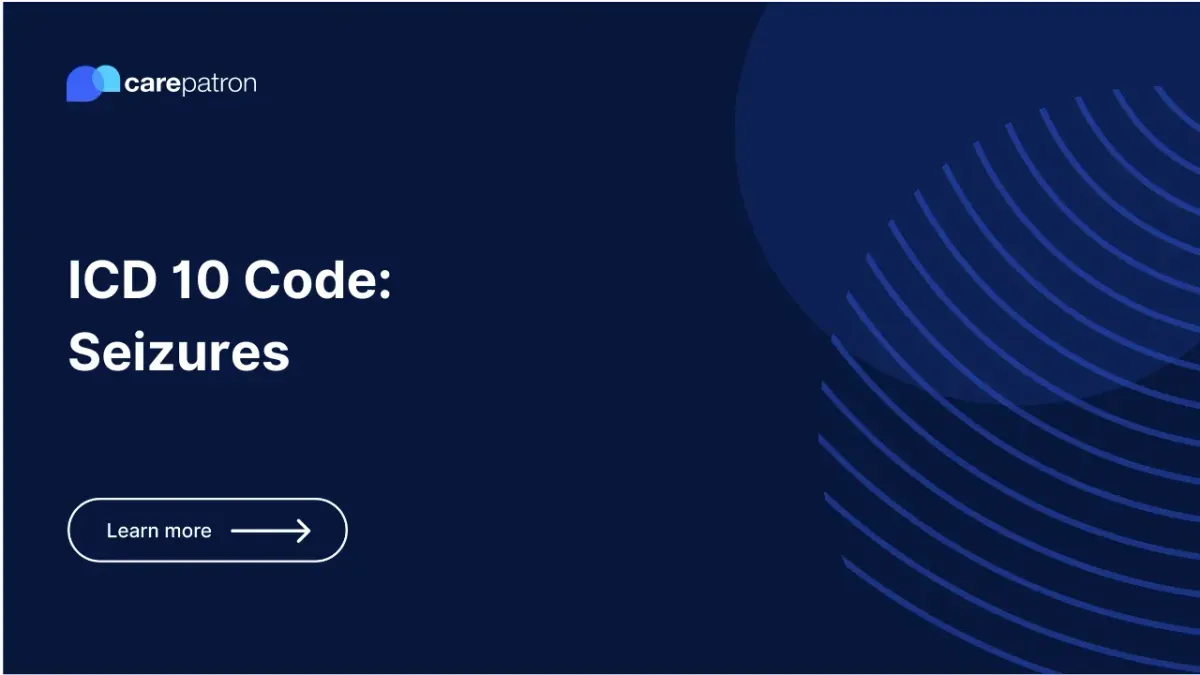
Seizures ICD-10-CM Codes
Learn about some of the ICD-10-CM codes for seizures that you can use through this guide.
Use Code
Commonly asked questions
Stress can induce seizures in people with epilepsy and some without known epilepsy. However, not everyone reacts to stress similarly, and many people have seizures unaffected by stress.
Stay calm, loosen anything around the person's neck, do not insert anything into their mouth, clear the area around them, and place them on their side as soon as the seizure stops. Seek emergency medical help if the seizure lasts longer than 5 minutes.
Epilepsy most commonly leads to recurrent seizures and can often be managed with medications. In some cases, dietary changes or surgery may be effective. Some children outgrow their epilepsy, and some adults may see an improvement or complete cessation of their seizures over time. However, for many, epilepsy is a lifelong condition that requires ongoing management.
EHR and practice management software
Get started for free
*No credit card required
Free
$0/usd
Unlimited clients
Telehealth
1GB of storage
Client portal text
Automated billing and online payments
